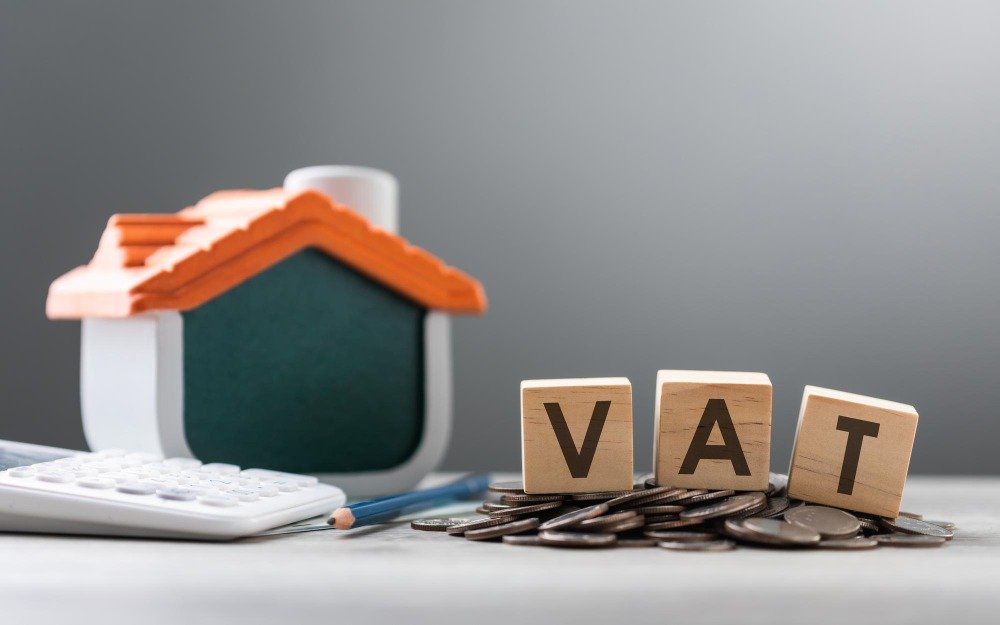The introduction of Value Added Tax (VAT) in the UAE in 2018 marked a significant change in the country’s taxation system. While the UAE is often known for its favorable tax regime, the introduction of VAT on real estate transactions has raised important questions for investors, property owners, and developers. In this article, we will break down everything you need to know about VAT on real estate in the UAE and how it affects property transactions.
What is VAT and How Does it Apply to Real Estate in the UAE?
VAT is a consumption tax that is applied to most goods and services in the UAE, including real estate transactions. The UAE introduced VAT at a rate of 5% on January 1, 2018. However, real estate transactions are treated differently compared to other goods and services, with various exemptions and conditions.
How VAT Affects Different Types of Real Estate Transactions
Understanding how VAT applies to real estate in the UAE is crucial for property buyers, sellers, and investors. The application of VAT varies depending on the type of property being bought, sold, or rented.
1. Residential Property Transactions
One of the key aspects of VAT on real estate in the UAE is that residential properties are generally exempt from VAT. This means that when purchasing or renting a residential property, VAT does not apply to the transaction. However, there are exceptions to this rule that you should be aware of.
What to Know:
- Newly Built Residential Properties: VAT will be applicable to the purchase of new residential properties in certain cases. For instance, newly constructed properties that are sold by a VAT-registered developer will typically have VAT charged at 5%.
- Renting Residential Property: The rental of residential property is also generally exempt from VAT, provided that the property is used for residential purposes. This includes long-term leases and rentals.
2. Commercial Property Transactions
Commercial property transactions, on the other hand, are subject to VAT. If you’re purchasing or renting a commercial property in the UAE, VAT will apply at the standard rate of 5%.
What to Know:
- VAT on Sale of Commercial Properties: When purchasing commercial real estate, VAT will be charged on the purchase price, which is typically 5% of the total value.
- Renting Commercial Properties: Renting commercial properties is also subject to VAT. The tenant will be required to pay VAT on the rental amount, which is charged by the property owner.
3. Off-Plan Properties and VAT
The purchase of off-plan properties is a common investment strategy in the UAE. For off-plan real estate, VAT applies in a similar way as it does for newly built properties.
What to Know:
- Developer Charges VAT: When buying an off-plan property, the developer will typically charge VAT on the sale price, which is included in the overall purchase cost.
- Payment Installments: For off-plan properties, VAT will be applied to each payment installment as the property is developed. Therefore, if you’re paying in installments, VAT will be added to each payment.
4. Exemptions for Certain Real Estate Transactions
While many real estate transactions are subject to VAT, there are a few exemptions that apply to specific types of properties and transactions.
What to Know:
- Sale of Land for Development: The sale of land intended for development is generally exempt from VAT, provided the buyer intends to develop the land for future use.
- Residential Property Sales Between Individuals: If you are buying or selling a residential property between individuals (i.e., not involving a developer or business entity), the transaction may be exempt from VAT.
How VAT Affects Real Estate Investors
For real estate investors, understanding VAT is essential to ensure that investments are properly structured and that they are complying with tax laws. VAT can have a significant impact on the overall cost of buying and selling properties, so it’s important to consider it in your investment strategy.
What Investors Need to Know:
- Input Tax Recovery: Real estate investors who are VAT-registered businesses may be able to recover the VAT they paid on the purchase of real estate through input tax recovery. This can reduce the overall cost of investment.
- Rental Yields: Investors should be aware that VAT may impact the rental yields they expect to receive. For example, if VAT is applicable on commercial property rental, it will be added to the rental amount, potentially increasing costs for tenants.
Commercial Properties and VAT for Investors:
Investors in commercial real estate should be particularly mindful of VAT, as it can impact their investment returns. For example, commercial property buyers will have to pay VAT at 5%, and the tenants of commercial properties will also be charged VAT on their rent.
VAT Registration for Real Estate Developers
Developers of real estate in the UAE are required to register for VAT if their annual turnover exceeds the mandatory registration threshold set by the UAE tax authorities. This means that VAT-registered developers will charge VAT on the sale of new real estate properties, including off-plan properties and commercial developments.
What Developers Need to Know:
- VAT on Development Costs: VAT-registered developers can claim back VAT on development costs, such as construction and materials. This is known as input tax recovery, which can help reduce the financial burden of VAT on the overall development.
- Pricing for Buyers: Developers must factor in VAT when pricing real estate for buyers. While residential properties may be exempt, commercial real estate and certain new developments will include VAT in the sale price.
Conclusion: Understanding VAT on Real Estate in the UAE
Understanding VAT on real estate in the UAE is essential for anyone involved in property transactions, from buyers and sellers to investors and developers. The introduction of VAT has added complexity to property transactions, but it’s important to note that residential properties are generally exempt, while commercial real estate and new developments are subject to the 5% VAT rate.
For investors and developers, understanding the VAT implications can help optimize investment strategies and ensure compliance with UAE tax laws. Whether you’re buying a home, renting, or purchasing commercial property, knowing the VAT rules will help you navigate the real estate market effectively.






Join The Discussion